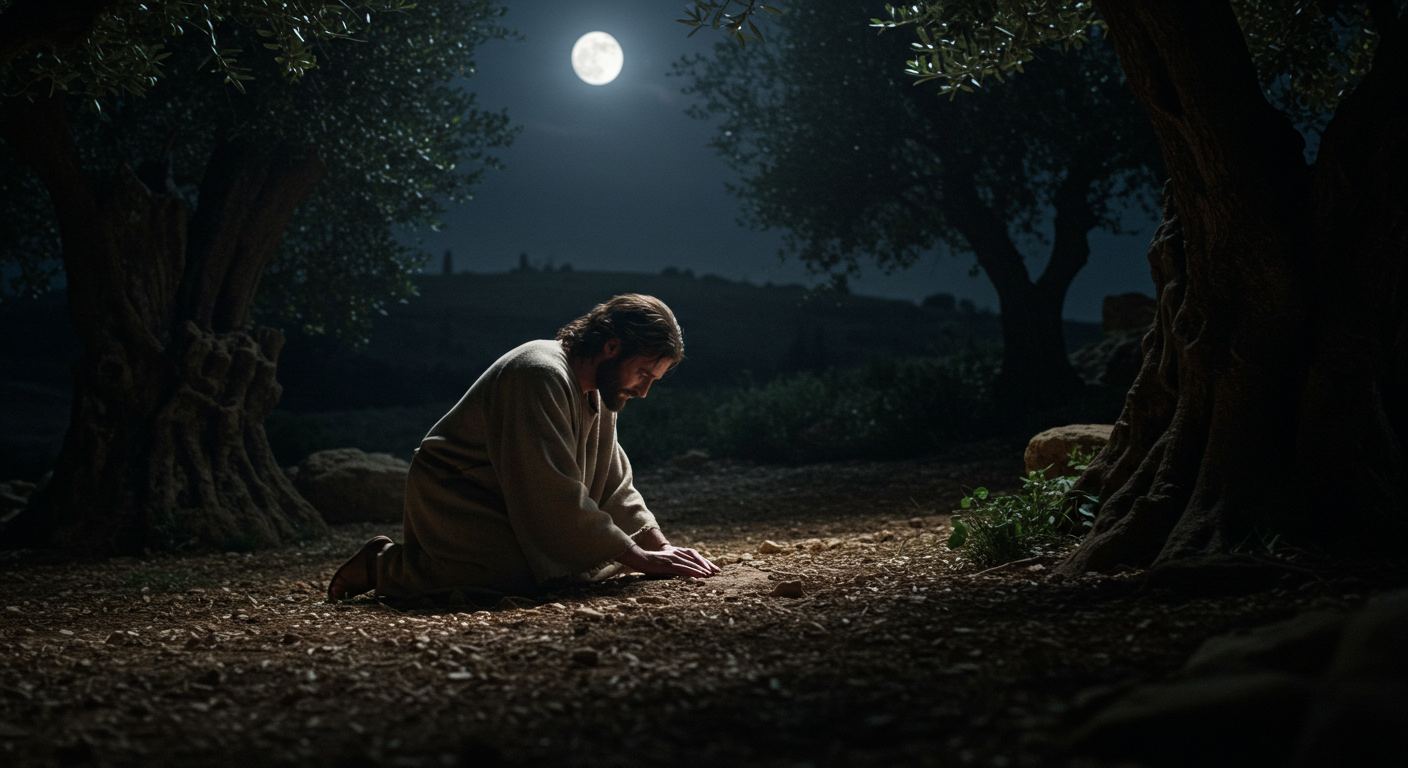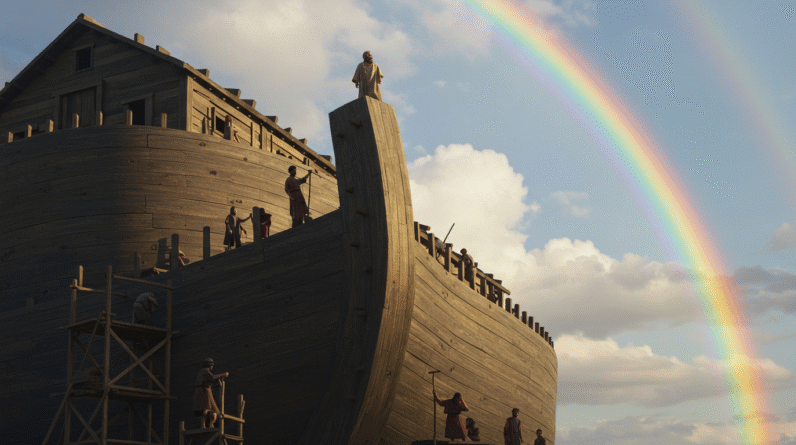How Jesus Modeled Perfect Surrender to the Father’s Will
Jesus’ life is a compelling narrative of unwavering trust and obedience. Have you ever marveled at how He navigated His earthly journey with such grace, even when faced with unimaginable trials? Through reflection on His actions, particularly in Gethsemane and on the Cross, we find a profound example of how Jesus modeled perfect surrender to the Father’s will. By examining these moments closely, we can uncover insights into how we might live out our own lives with a similar sense of surrender.
The Meaning of Surrender in Biblical Context
Surrender, in the biblical sense, isn’t about passivity or resignation. Instead, it’s a conscious decision to yield one’s desires in favor of something greater—God’s plan. It’s about trust, about believing that the one you’re surrendering to has a perspective far beyond what you can see. This initial context frames our understanding of how Jesus lived His life and how He achieved true surrender. When considering Jesus’ surrender, we see it wasn’t just in actions but deeply rooted in His heart’s desire to fulfill the Father’s will above all else.
Early Instances of Surrender in Jesus’ Life
From a young age, Jesus showcased His commitment to the Father’s will. Remember when He stayed behind in the temple, astonishingly learned teachers with His wisdom? Luke 2:49 captures that moment when He replied to His parents, “Didn’t you know I had to be in my Father’s house?” Here, even as a child, Jesus exemplifies how His priorities were aligned with the Father’s will, not out of obligation, but a profound understanding that His purpose was integrally connected to a higher calling.
The Baptism of Jesus: An Act of Obedience
Fast-forward to His baptism, a moment that might seem surprising. Why would the sinless one need baptism? But for Jesus, it was an act of solidarity with humanity and submission to the Father’s plan. His baptism represented a public declaration of His mission and an act of obedience to God’s redemptive plan. As the heavens opened and God proclaimed His pleasure in His Son, Matthew 3:16-17, we witness how Jesus’ surrender brought divine affirmation.
Temptation in the Wilderness
Soon after His baptism, Jesus faced the wilderness, a stark contrast from the spiritual high of the Jordan River. Satan himself tempted Him, offering shortcuts to power and worldly glory. Yet, in this desolate place, Jesus demonstrated perfect surrender to the Father’s will. By standing firm, saying, “Man shall not live on bread alone, but on every word that comes from the mouth of God” Matthew 4:4, He teaches us that surrender means rejecting the world’s empty promises in favor of God’s eternal truths.
The Mount of Transfiguration and Its Significance
The Mount of Transfiguration offers another moment rich with meaning. There, Jesus’ divine nature shone through a cloud of glory as He discussed His sacrificial role with Moses and Elijah Matthew 17:2-3. Despite this divine confirmation of His path, it was also a somber reminder of the suffering He must endure. Yet, Jesus’ surrender was resolute. He was committed to the cross, and through this moment, His disciples got a glimpse of His divine purpose and His unyielding surrender to God’s plan for redemption.
Gethsemane: The Ultimate Act of Surrender
No reflection on Jesus’ surrender would be complete without Gethsemane. It’s a moment that encapsulates the struggle between human desire and divine will. In this garden, Jesus laid bare His soul, praying with intense agony. “My Father, if it is possible, may this cup be taken from me. Yet not as I will, but as you will” Matthew 26:39. Here, He models how to wrestle sincerely with God, yet remain surrendered to His will. It’s a moment of raw honesty and profound trust, showing us that surrender isn’t devoid of struggle.

Gethsemane’s Reflections on Human Frailty
In Gethsemane, we see Jesus experiencing intense human emotions—anguish, sorrow, and perhaps even fear. It’s a deeply relatable moment that reminds us that surrender doesn’t erase human feelings. It acknowledges them but then looks beyond them. Jesus’ request for His disciples to stay awake with Him and their subsequent failing illustrates how even amidst solitude and personal battles, Jesus found strength in His relationship with the Father. It teaches us that true surrender requires more than reliance on human support; it demands total dependence on God.
The Trial: Silent Strength and Dignity
The narrative moves quickly from Gethsemane to the trial, where Jesus stood before human authorities, silent and dignified. In the face of false accusations and questions, He responded sparingly, Matthew 27:11-14, fulfilling prophecy and demonstrating immense inner fortitude. His silence wasn’t weakness but a powerful surrender to God’s unfolding plan. Here, Jesus teaches us that sometimes surrender means trusting God to be our advocate, even when the world accuses us unjustly.
The Cross: The Pinnacle of Jesus’ Surrender
The climax of Jesus’ surrender is undoubtedly the Cross. Death by crucifixion was designed as a brutal, humiliating end, yet Jesus willingly bore it, fully aware of the pain, shame, and separation from the Father it entailed. “[Father, into your hands I commit my spirit]” Luke 23:46 was His final proclamation—words of absolute surrender. His sacrifice wasn’t just about His faithfulness to God’s plan but also a redemptive act for all humanity. In dying, Jesus didn’t just fulfill His purpose; He transformed the concept of victory and defeat, demonstrating that true power comes through surrender.
The Cross’ Redemption: From Surrender to Salvation
On the Cross, Jesus’ surrender transforms loss into gain. What seemed like a defeat was the triumphant climax of God’s salvation plan. Jesus’ final crucifixion moments reveal the depth of His love and commitment to God’s purposes, bringing profound hope to believers. Through His sacrifice, He opened the path to reconciliation with God, showing that surrender doesn’t lead to loss but rather to unimaginable spiritual gain.
The Resurrection: God’s Response to Surrender
Surrender, in Jesus’ case, didn’t end in death—it culminated in resurrection. The empty tomb is God’s ultimate vindication of Jesus’ life of surrender. His resurrection wasn’t just about victory over physical death but a demonstration of God’s authority over sin and the grave. Jesus’s surrender became the cornerstone for faith, offering hope and new life to all who believe. For us, it reaffirms that following God’s will, though it may involve trials, promises divine vindication and eternal life.
Lessons from Jesus’ Surrender for Our Lives
Reflecting on Jesus’ life and His ultimate act of surrender challenges us to evaluate our journeys. Surrendering to God isn’t a one-time decision, but a continuous way of living. While we may not face the same trials as Jesus, we have daily opportunities to choose His path of surrender. Whether in career choices, relationships, or personal ambitions, we’re called to align our will with God’s purposes.
Practical Steps for Living a Life of Surrender
Living a surrendered life involves daily, intentional choices. Some practical steps include:
- Prayer and Reflection: Regularly seek God’s guidance through prayer, asking for the strength to surrender to His will.
- Study Scripture: Dive into God’s Word to understand His character and desires for our lives.
- Community and Accountability: Surround yourself with like-minded individuals who encourage and challenge you to live out God’s purposes.
- Obedience in Action: Be willing to act upon God’s leading, even when it involves risk or uncertainty.
Conclusion: Embracing the Call to Surrender
As we conclude our exploration of how Jesus modeled perfect surrender to the Father’s will, we’re left with a profound example to follow. Jesus’ life wasn’t devoid of struggle, but He showed us that surrender is the path to ultimate fulfillment and divine purpose. Embracing this way of living requires courage and faith, but it promises to transform our lives beyond measure.
Explore More
For further reading and encouragement, check out these posts:
👉 7 Bible Verses About Faith in Hard Times
👉 Job’s Faith: What We Can Learn From His Trials
👉 How To Trust God When Everything Falls Apart
👉 Why God Allows Suffering – A Biblical Perspective
👉 Faith Over Fear: How To Stand Strong In Uncertain Seasons
👉 How To Encourage Someone Struggling With Their Faith
👉 5 Prayers for Strength When You’re Feeling Weak

📘 Jesus and the Woman Caught in Adultery – Grace and Mercy Over Judgement
A powerful retelling of John 8:1-11. This book brings to life the depth of forgiveness, mercy, and God’s unwavering love.
👉 Check it now on Amazon
As a ClickBank Affiliate, I earn from qualifying purchases.
Acknowledgment: All Bible verses referenced in this article were accessed via Bible Gateway (or Bible Hub).
“Want to explore more? Check out our latest post on Why Jesus? and discover the life-changing truth of the Gospel!”








